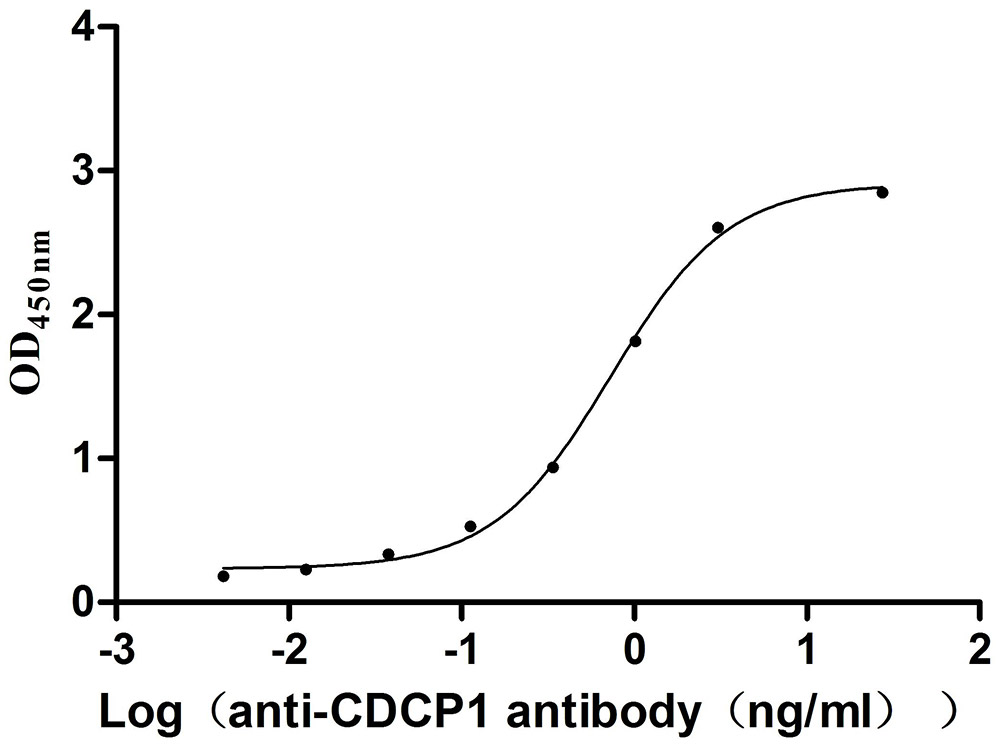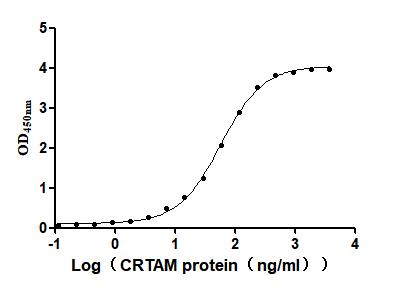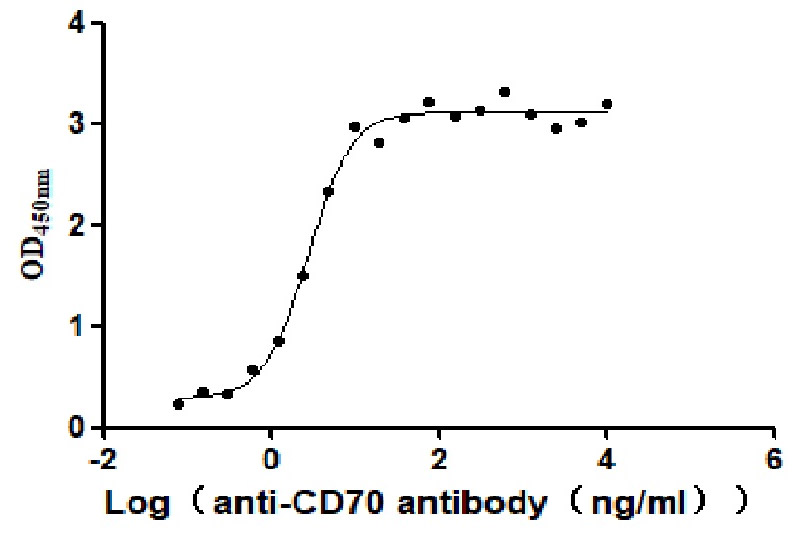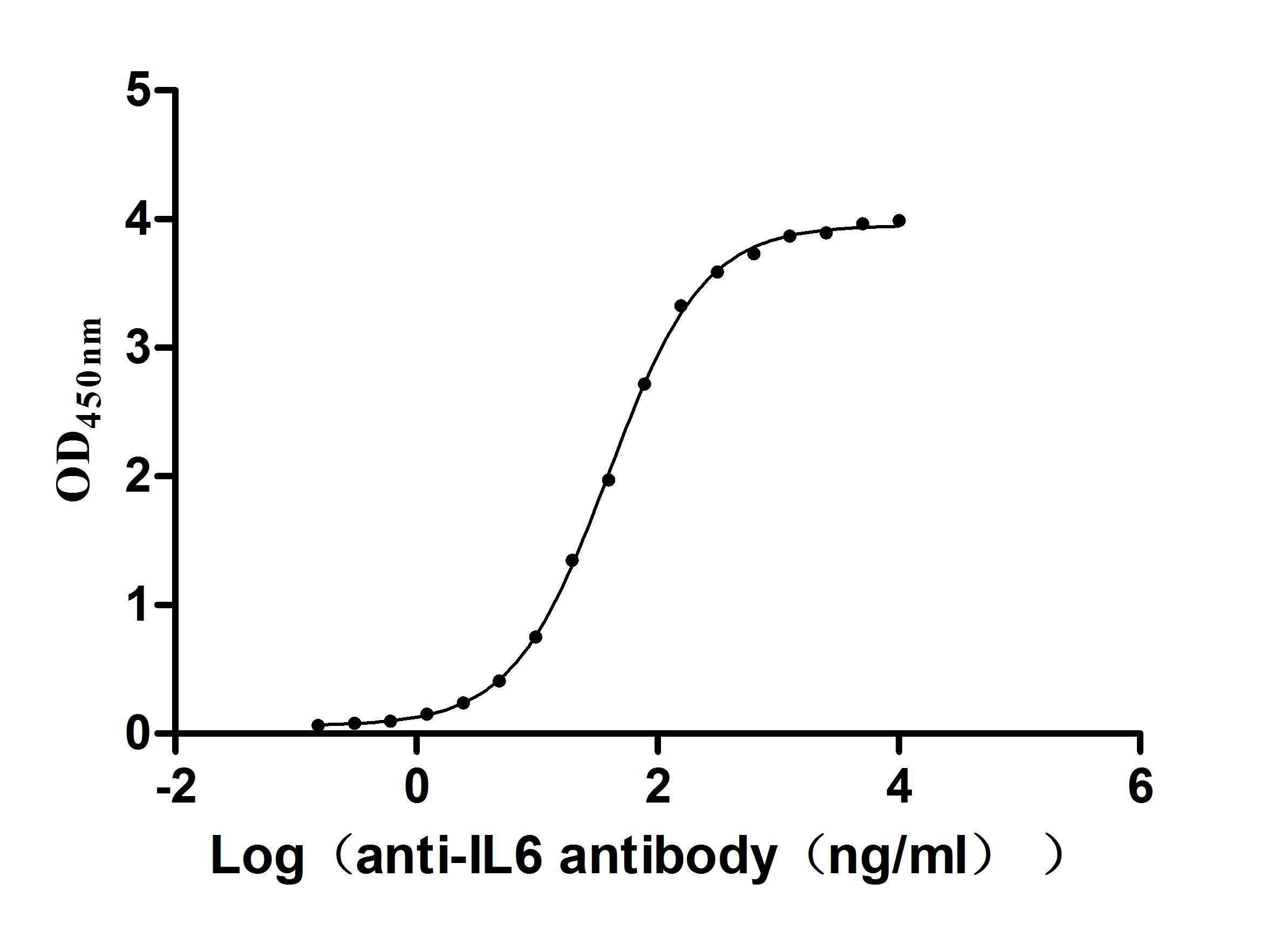Recombinant Human Protein kinase C delta type (PRKCD)
In Stock-
货号:CSB-EP018702HU
-
规格:¥1836
-
图片:
-
其他:
产品详情
-
纯度:Greater than 85% as determined by SDS-PAGE.
-
基因名:
-
Uniprot No.:
-
别名:CVID9; D14Ertd420e; Kinase PKC delta; KPCD; KPCD_HUMAN; MAY 1; MAY1; MGC49908; nPKC delta; nPKC-delta; PCKd; PKC d; PKC delta; PKCD; PKCdelta; PRKC D; PRKC delta; Prkcd; Protein Kinase C delta; Protein kinase C delta type; Protein kinase C delta VIII; Protein Kinase Cdelta; Tyrosine protein kinase PRKCD
-
种属:Homo sapiens (Human)
-
蛋白长度:Full Length
-
来源:E.coli
-
分子量:81.6 kDa
-
表达区域:1-676aa
-
氨基酸序列MAPFLRIAFNSYELGSLQAEDEANQPFCAVKMKEALSTERGKTLVQKKPTMYPEWKSTFDAHIYEGRVIQIVLMRAAEEPVSEVTVGVSVLAERCKKNNGKAEFWLDLQPQAKVLMSVQYFLEDVDCKQSMRSEDEAKFPTMNRRGAIKQAKIHYIKNHEFIATFFGQPTFCSVCKDFVWGLNKQGYKCRQCNAAIHKKCIDKIIGRCTGTAANSRDTIFQKERFNIDMPHRFKVHNYMSPTFCDHCGSLLWGLVKQGLKCEDCGMNVHHKCREKVANLCGINQKLLAEALNQVTQRASRRSDSASSEPVGIYQGFEKKTGVAGEDMQDNSGTYGKIWEGSSKCNINNFIFHKVLGKGSFGKVLLGELKGRGEYFAIKALKKDVVLIDDDVECTMVEKRVLTLAAENPFLTHLICTFQTKDHLFFVMEFLNGGDLMYHIQDKGRFELYRATFYAAEIMCGLQFLHSKGIIYRDLKLDNVLLDRDGHIKIADFGMCKENIFGESRASTFCGTPDYIAPEILQGLKYTFSVDWWSFGVLLYEMLIGQSPFHGDDEDELFESIRVDTPHYPRWITKESKDILEKLFEREPTKRLGVTGNIKIHPFFKTINWTLLEKRRLEPPFRPKVKSPRDYSNFDQEFLNEKARLSYSDKNLIDSMDQSAFAGFSFVNPKFEHLLED
Note: The complete sequence including tag sequence, target protein sequence and linker sequence could be provided upon request. -
蛋白标签:N-terminal 6xHis-tagged
-
产品提供形式:Liquid or Lyophilized powder
Note: We will preferentially ship the format that we have in stock, however, if you have any special requirement for the format, please remark your requirement when placing the order, we will prepare according to your demand. -
缓冲液:If the delivery form is liquid, the default storage buffer is Tris/PBS-based buffer, 5%-50% glycerol. If the delivery form is lyophilized powder, the buffer before lyophilization is Tris/PBS-based buffer, 6% Trehalose, pH 8.0.
-
复溶:We recommend that this vial be briefly centrifuged prior to opening to bring the contents to the bottom. Please reconstitute protein in deionized sterile water to a concentration of 0.1-1.0 mg/mL.We recommend to add 5-50% of glycerol (final concentration) and aliquot for long-term storage at -20°C/-80°C. Our default final concentration of glycerol is 50%. Customers could use it as reference.
-
储存条件:Store at -20°C/-80°C upon receipt, aliquoting is necessary for mutiple use. Avoid repeated freeze-thaw cycles.
-
保质期:The shelf life is related to many factors, storage state, buffer ingredients, storage temperature and the stability of the protein itself.
Generally, the shelf life of liquid form is 6 months at -20°C/-80°C. The shelf life of lyophilized form is 12 months at -20°C/-80°C. -
货期:3-7 business days
-
注意事项:Repeated freezing and thawing is not recommended. Store working aliquots at 4°C for up to one week.
-
产品描述:The synthesis of this Recombinant Human PRKCD protein depends on the utilization of recombinant DNA technology. DNA sequences that encoded the PRKCD protein could be inserted into a vector and introduced into an expression host, E.coli, where it could be easily expressed in and purified from. The expression of this PRKCD protein was at 1-676aa. N-terminal 6xHis tag was fused with this protein. The purity is 85%+ determined by SDS-PAGE.PRKCD (also known as PKCD) is gene encoding a protein named protein kinase C delta type (PRKCD) in human. The protein encoded by this gene is also known as Tyros...显示更多
-
Datasheet & COA:Please contact us to get it.
相关产品
靶点详情
-
功能:Calcium-independent, phospholipid- and diacylglycerol (DAG)-dependent serine/threonine-protein kinase that plays contrasting roles in cell death and cell survival by functioning as a pro-apoptotic protein during DNA damage-induced apoptosis, but acting as an anti-apoptotic protein during cytokine receptor-initiated cell death, is involved in tumor suppression as well as survival of several cancers, is required for oxygen radical production by NADPH oxidase and acts as positive or negative regulator in platelet functional responses. Negatively re...显示更多
-
基因功能参考文献:
- PKC-delta isoform plays a crucial role in Tat-TLR4 signaling pathway to activate NF-kappaB and CXCL8 production. PMID: 28539656
- Tumor suppressor activity of Protein kinase C-delta.[review] PMID: 28571764
- Data suggest a targeted therapy and early medical intervention for protein kinase C delta (PKCdelta) could be a useful option for breast cancer cases complicated with type 2 diabetes mellitus (T2DM) or hyperglycemia. PMID: 29036789
- NSC606985 produced a dose-dependent subcellular activation of PKCdelta. The dose-dependent dual action of NSC is mediated at least in part through the differential subcellular activation of castration-resistant prostate cancer (CRPC) LAPC4 cells. PMID: 29048618
- PKC-delta expression is associated with KIT expression and the prognosis of patients with adenoid cystic carcinomas (AdCCs), suggesting that PKC-delta may be a potential therapeutic target for AdCCs. PMID: 28561935
- Taken together, our findings suggest that TM-PKCdelta interaction may contribute to cardiovascular disorders by affecting monocye differentiation, which may develop future therapeutic applications. PMID: 27910925
- PKC-delta played as a protective role in squamous cell carcinomas partly by down-regulating p63, leading to the suppression of squamous cell carcinomas cell proliferation PMID: 28756980
- Activated PKCdelta interacts with the polymerase subunit PB2 and phospho-regulates NP oligomerization and RNP assembly during Influenza A virus infection. PMID: 28758638
- NRF2 Ser40 phosphorylation was inhibited in Crif1-deficient bone marrow multipotent mesenchymal stromal cells even in the presence of three kinds of PKC agonists, suggesting that CRIF1 might co-activate PKC-delta to phosphorylate NRF2 Ser40. PMID: 28819452
- PKCdelta has an overall negative influence on platelet function in response to collagen, while, following PAR stimulation, PKCdelta has a positive effect on platelet function. PKCdelta has different roles in platelet activation, aggregation and thrombus formation. Review. PMID: 27765273
- Findings unveil a negative role for PKC-delta in cell-cell adhesion through phosphorylation of E-cadherin. PMID: 27203386
- ADP inhibits mesothelioma cell proliferation via PKC-delta/JNK/p21/p27 signaling. PMID: 28777435
- PKCdelta, via MAPK pathway, is involved in the glycodelin-driven cell differentiation. PMID: 27373413
- PKCdelta is a critical regulator of signaling mechanisms of neutrophil-endothelium interaction in acute inflammation. Inhibition of PKCdelta in human endothelial cells and neutrophils reduced chemoattractant-induced neutrophil migration across TNF-alpha-activated endothelium, and reduced expression of E-selectin and ICAM-1. Shear rate and vascular geometry regulate the impact of PKCdelta inhibition of neutrophil-endot... PMID: 27190303
- Lysophosphatidylcholines prime polymorphonuclear neutrophil through Hck-dependent activation of PKCdelta, which stimulates PKCgamma, resulting in translocation of phosphorylated p47(phox). PMID: 27531930
- Amphiregulin enhances VEGF-A production in human chondrosarcoma cells and promotes angiogenesis by inhibiting miR-206 via FAK/c-Src/PKCdelta pathway. PMID: 27826039
- In the present investigation, we demonstrated that miR486 is negatively associated with the expression of PKC-delta and could regulate the development of osteosarcoma. miR-486 may be a potential target for the treatment of osteosarcoma PMID: 28339053
- PKCdelta and PKCepsilon work as a functional couple with opposite roles on thrombopoiesis, and the modulation of their balance strongly impacts platelet production. PMID: 27081176
- These findings suggest that targeting Wnt/beta-catenin or Akt pathways may increase the efficacy of taxane chemotherapy in advanced human prostate cancers that have lost PKCdelta expression. PMID: 27196755
- description of a rare monogenic form of juvenile systemic lupus erythematosus caused by a novel but damaging homozygous mutation affecting the active region of PRKCD. PMID: 28003329
- MALAT1 recruits splice factor serine-arginine-rich splice factor 2 (SRSF2) to promote alternative splicing of PKCdeltaII. PMID: 27841943
- mechanistic studies, inhibition of SRC and PKCdelta completely ablated the ability of MDA-7/IL-24 to reduce the Bcl-x(L)/(s) mRNA ratio and cell viability. These findings show that Bcl-x(s) expression is an important mediator of MDA-7/IL-24-induced cytotoxicity requiring the SRC/PKCdelta signaling axis in NSCLC cells. PMID: 27519412
- upregulation of miR-940 may function as a suppressor in the progression of ovarian cancer by inhibiting cell proliferation and inducing apoptosis by targeting PKC-delta. This study may provide a basis for the possible application of miR-940 in illustrating the molecular pathogenic mechanism of ovarian cancer. PMID: 28081739
- The results showed that a repressor complex composed of NFX1-91, mSin3A and histone deacetylase 1 was involved in the PKC-delta-induced repression of the hTERT promoter, which resulted in the repression of hTERT transcription. PMID: 27311997
- Knockdown of PKCdelta results in a reduction of HIF-1alpha mRNA levels. PMID: 26284819
- Study shows that PRKCD influences corticotroph cell viability, POMC and ACTH expression suggesting that PRKCD plays an important role in restraining corticotroph cell proliferation and function. PMID: 26522132
- PKCzeta Promotes Breast Cancer Invasion by Regulating Expression of E-cadherin and Zonula Occludens-1 (ZO-1) via NFkappaB-p65 PMID: 26218882
- Persistent PRKCD elevation in fibroblasts from diabetic patients inhibits insulin signaling and function to impair wound healing. PMID: 26808499
- Data suggest that cytokines (TNF-alpha, IL1-beta, IFN-gamma) disrupt gap junction coupling in pancreatic islets under conditions associated with prediabetes; the mechanism appears to involve nitric oxide-mediated activation of protein kinase C-delta. PMID: 26668311
- Phosphorylation site at Ser130 adjacent to the pseudosubstrate domain contributes to the activation of protein kinase. PMID: 26546672
- Docosahexaenoic acid increase the efficacy of docetaxel in mammary cancer cells by downregulating Akt and PKCepsilon/delta-induced ERK pathways. PMID: 26821209
- K-Ras stabilization by estrogen via PKCdelta has a role in endometrial tumorigenesis PMID: 26015399
- PKC-delta is a crucial factor in the heat sensitivity and thermal resistance of tongue squamous carcinoma cells. PMID: 26017369
- Study shows selective phosphorylation of PKCdelta in HTLV1infected T cells where Tax activates NFkappaB through PKCdelta activation. PMID: 25625567
- Results show that PKCdelta acts as a critical regulator for the maintenance of tumor initiating cells in glioblastoma through specific phosphorylation on Ser473 of AKT, therefore activating its signaling pathway. PMID: 25746003
- isotype delta-PKC is responsible for myristoylated alanine-rich C-kinase substrate (MARCKS) phosphorylation in human neutrophils following f-Met-Leu-Phe stimulation and MARCKS phosphorylation is essential for neutrophil migration and adhesion. PMID: 25515270
- this report suggests a novel finding that cellular signaling caspase 3/7-PKCdelta-Akt/p38 MAPK is crucial to the repopulation in Panc1 cells after radiotherapy. PMID: 25156550
- Results suggest that miR-224-5p may function as an oncogene and induce platinum resistance in ovarian papillary serous carcinoma at least in part by downregulating PRKCD. PMID: 25017423
- The Epstein-Barr virus LMP1-induced IL-32 traps protein kinase Cdelta in the cytoplasm and prevents it from binding to the Zta promoter, which is the key event for virus activation. PMID: 25810549
- Studies identify a C2 domain pTyr313 docking interaction that controls ATP-positioning loop phosphorylation as a novel, dynamically regulated, and physiologically relevant structural determinant of PKCdelta catalytic activity. PMID: 25755284
- IL-32theta;, through its interaction with PKCdelta, downregulates CCL5 expression by mediating the phosphorylation of STAT3 on Ser727 to render it transcriptionally inactive. PMID: 25280942
- PKC-mediated syndecan-1 downregulation causes loss of cell invasiveness in melanoma cells under anchorage independency PMID: 25236603
- Docking and physicochemical studies indicated that BTK was involved in close contact with Tyr86 and Tyr106 of MAL, whereas PKCdelta may phosphorylate Tyr106 only. PMID: 24840642
- Suggest distinct role of PKCdelta in controlling cell fate and immune response of monocyte subsets. PMID: 25322815
- our data demonstrate that FZD1 regulates PKCdelta, and the PKCdelta/AP-1 signalling transduction pathway plays an important role in drug resistance in MES-SA/Dx5 cells. PMID: 24814288
- There is a PRKCD-dependent proapoptotic mechanism controlling stability of HAX-1, a proto-oncogene in mantle cell lymphoma. PMID: 25419709
- histone acetylation regulates PKCdelta expression to augment nigrostriatal dopaminergic cell death, which could contribute to the progressive neuropathogenesis of Parkinson disease PMID: 25342743
- High glucose increased protein kinase C delta phosphorylation. PMID: 24289563
- Trp-252 of PRKCD contributes to diacylglycerol affinity. PMID: 25124034
- PKCdelta protein levels were decreased in the putamen of Huntington's disease patients. PMID: 23896721
收起更多
-
相关疾病:Autoimmune lymphoproliferative syndrome 3 (ALPS3)
-
亚细胞定位:Cytoplasm. Cytoplasm, perinuclear region. Nucleus. Cell membrane; Peripheral membrane protein. Mitochondrion. Endomembrane system.
-
蛋白家族:Protein kinase superfamily, AGC Ser/Thr protein kinase family, PKC subfamily
-
数据库链接:
HGNC: 9399
OMIM: 176977
KEGG: hsa:5580
STRING: 9606.ENSP00000331602
UniGene: Hs.155342

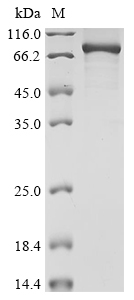

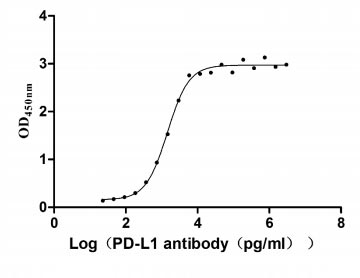
-AC1.jpg)
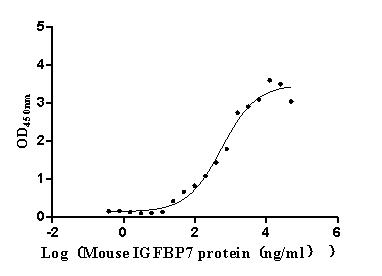
-AC1.jpg)
